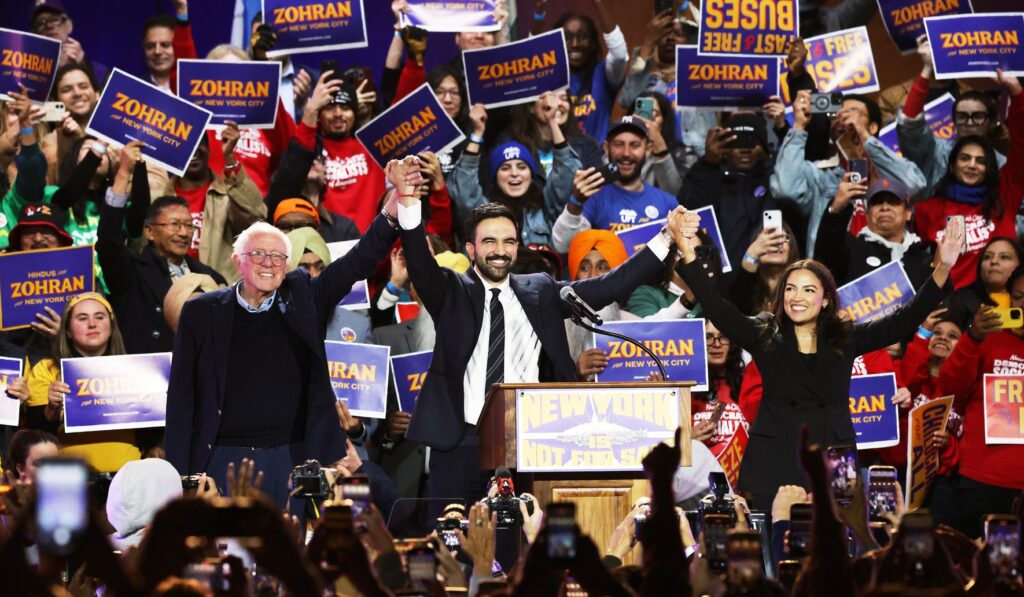Zohran Mamdani’s upset victory in New York’s mayoral race exposed a fierce split inside the Democratic Party and sent clear signals about the direction of national politics. That internal fight now threatens to reshape the party and the 2026 midterm landscape.
The surprise win by Democratic socialist Zohran Mamdani has sharpened a divide that was already simmering between progressives and establishment Democrats. For voters watching from outside New York, it looks less like a local moment and more like a symptom of a party unsure of its identity. The clash over priorities and messaging is public, messy, and politically costly.
Mamdani’s rise is the product of energized grassroots organizing and a message that resonated in pockets of the city hungry for change. That same energy, however, comes with positions that alarm moderate and suburban voters who have been drifting away. A party that embraces extremes risks losing the broad coalitions that win national elections.
Establishment Democrats face a dilemma: oppose the insurgent wing and alienate a motivated base, or accommodate it and further spook swing voters. Either choice carries real consequences for the Democrats’ ability to secure seats in 2026. Internal brawling makes coherent messaging impossible and gives opponents a simple story to run against them.
The fallout will be more than rhetorical. When local leaders push policies that seem out of step with mainstream concerns, lawmakers at every level get forced into defensive positions. That creates openings for rival candidates to argue that the party is out of touch with everyday priorities like public safety, schools, and taxes. Those issues have a habit of deciding elections.
Republicans are watching this split with tactical interest. A fractured opposition that struggles to present a united front makes it easier to highlight competence and contrast. But the window does not stay open by itself. Voters who reject extremism still expect credible alternatives, not just opposition for its own sake.
There is also an organizational angle to consider. Progressive victories test the limits of party institutions that once managed candidate selection and funding. When those institutions falter, local races can become nationalized and unpredictable. That unpredictability feeds into narrative control for the party’s rivals and complicates long-term planning for the Democrats themselves.
The national implications go beyond a single mayoral chamber. If the party’s internal war pushes policy further left, the electorate may respond by shifting toward candidates who promise steadier governance. The 2026 midterms are already shaping up as a referendum on competence and control. A divided Democratic Party hands momentum to the opposition without a fight at the message level.
At the same time, the leftward push exposes practical risks in urban governance. Bold rhetoric that does not translate into workable policy quickly becomes political baggage. Voters remember service failures before they remember ideology, and that memory can influence broader contests outside the city limits.
What happens next will depend on how quickly leaders on both sides recalibrate. If moderates rebuild coalitions that include disaffected suburban voters, they can blunt the damage. If progressives double down and force a sharp ideological test, the resulting turmoil could reconfigure power maps long before 2026. Either way, the Mamdani victory made the choice unavoidable.



